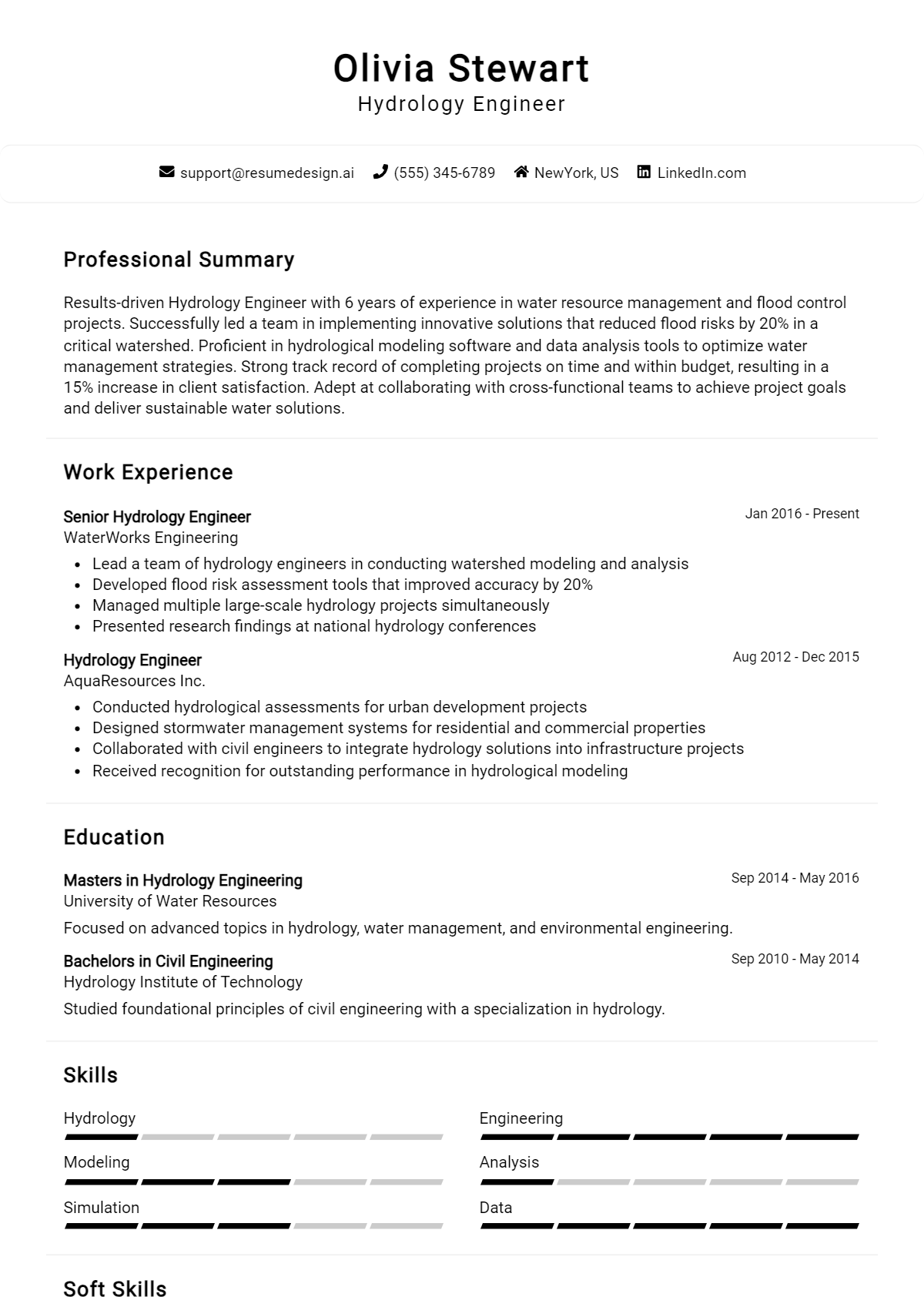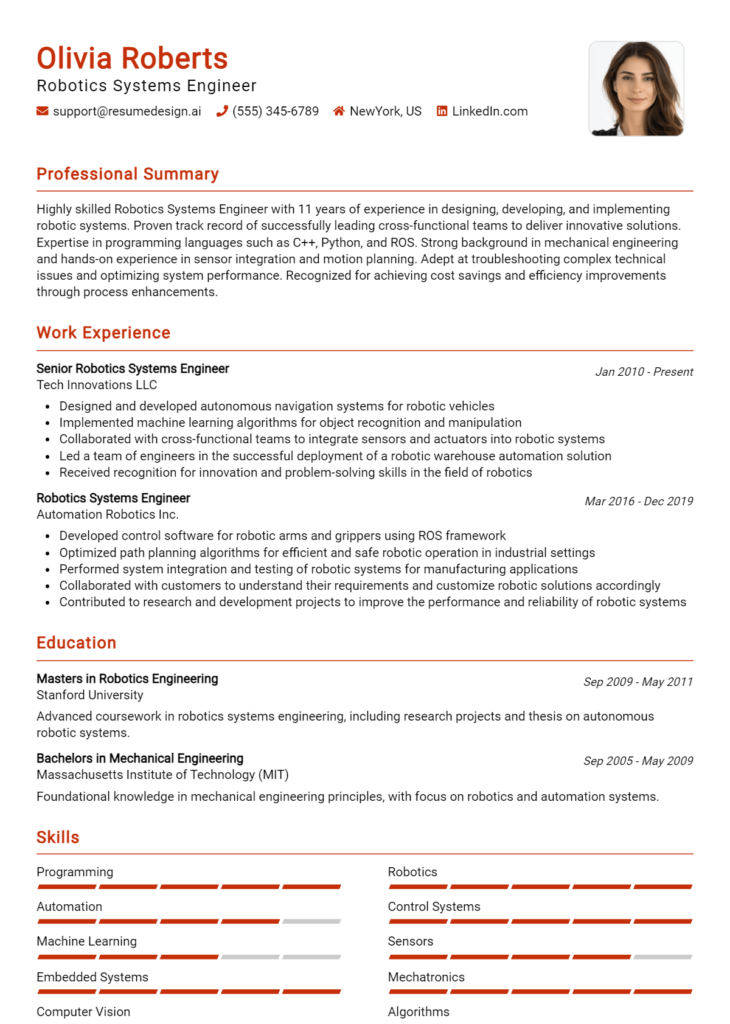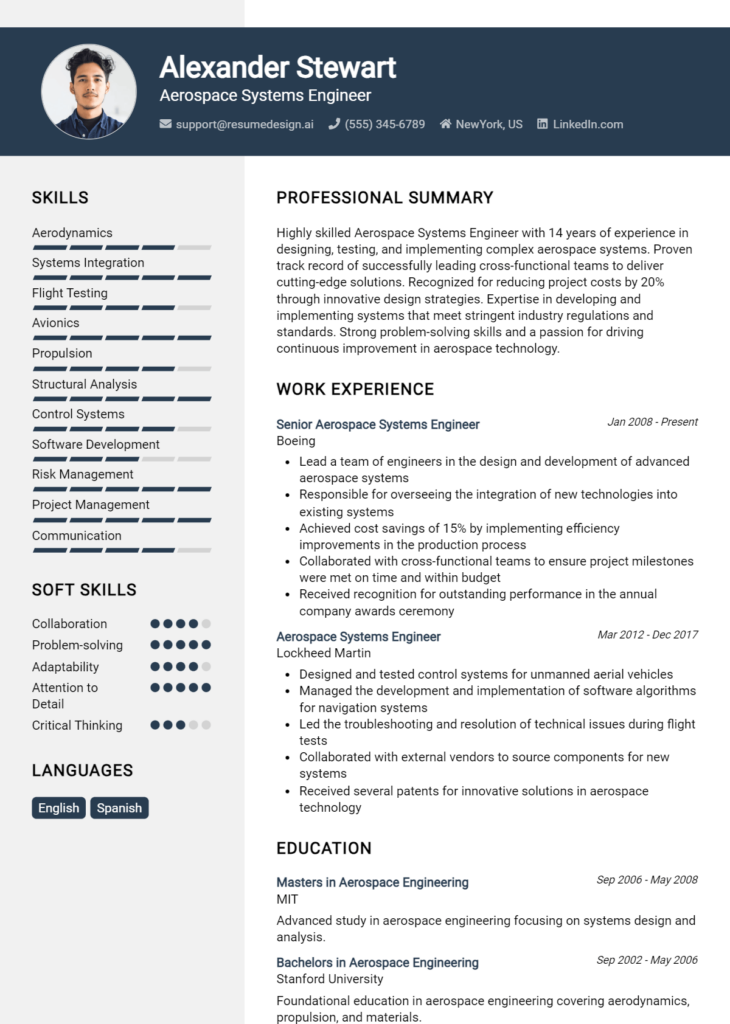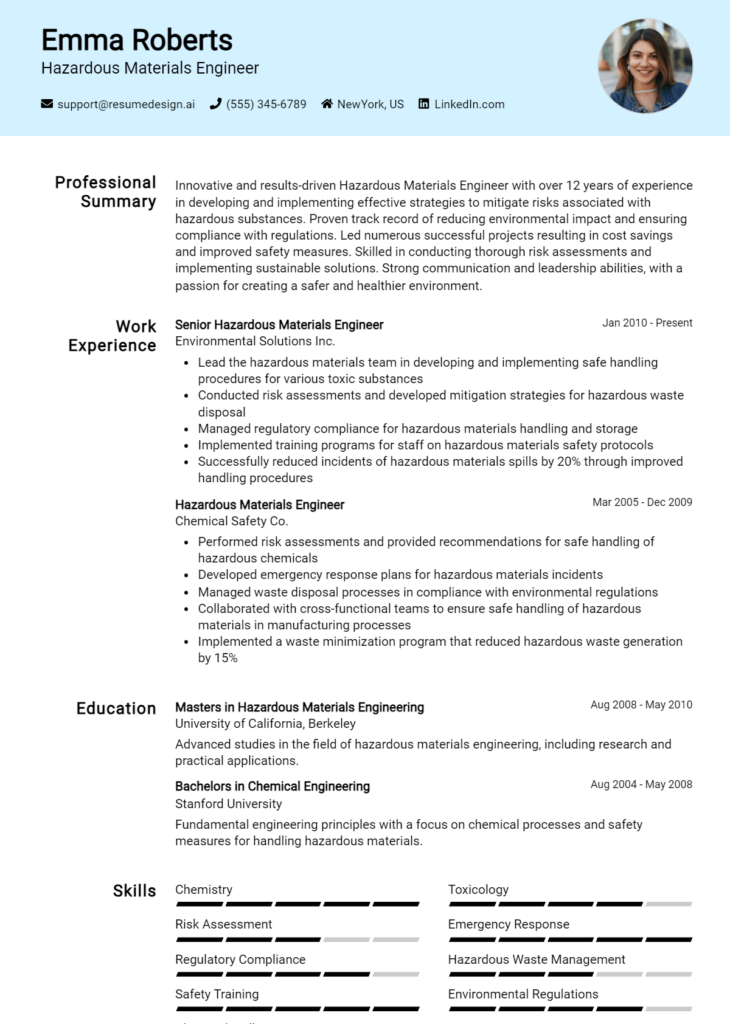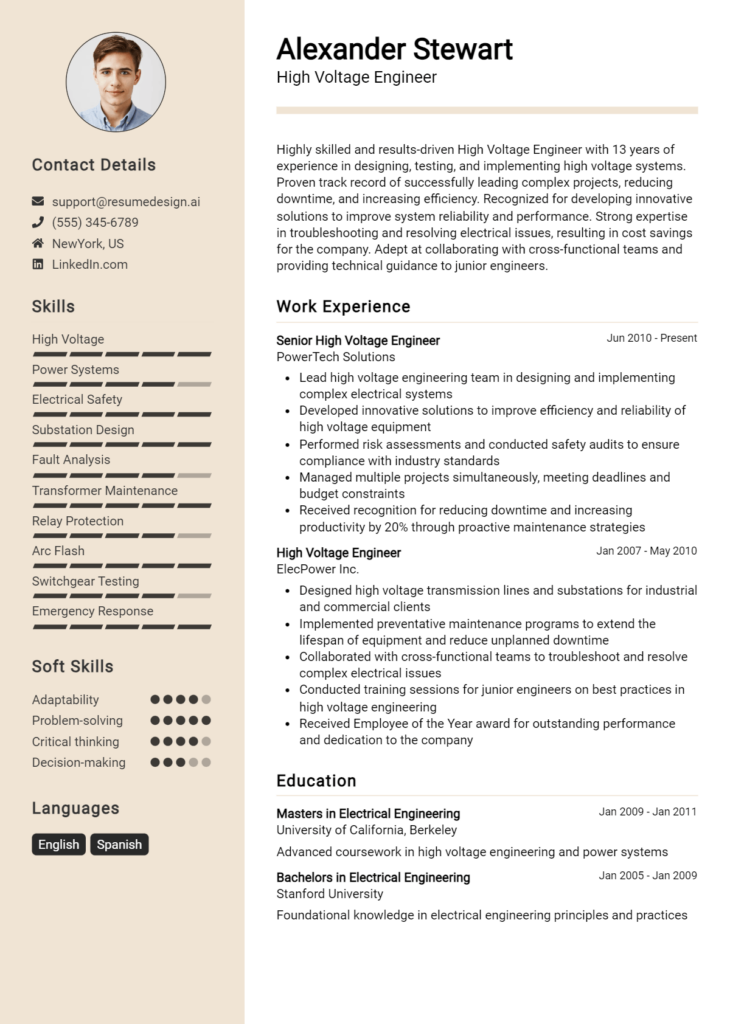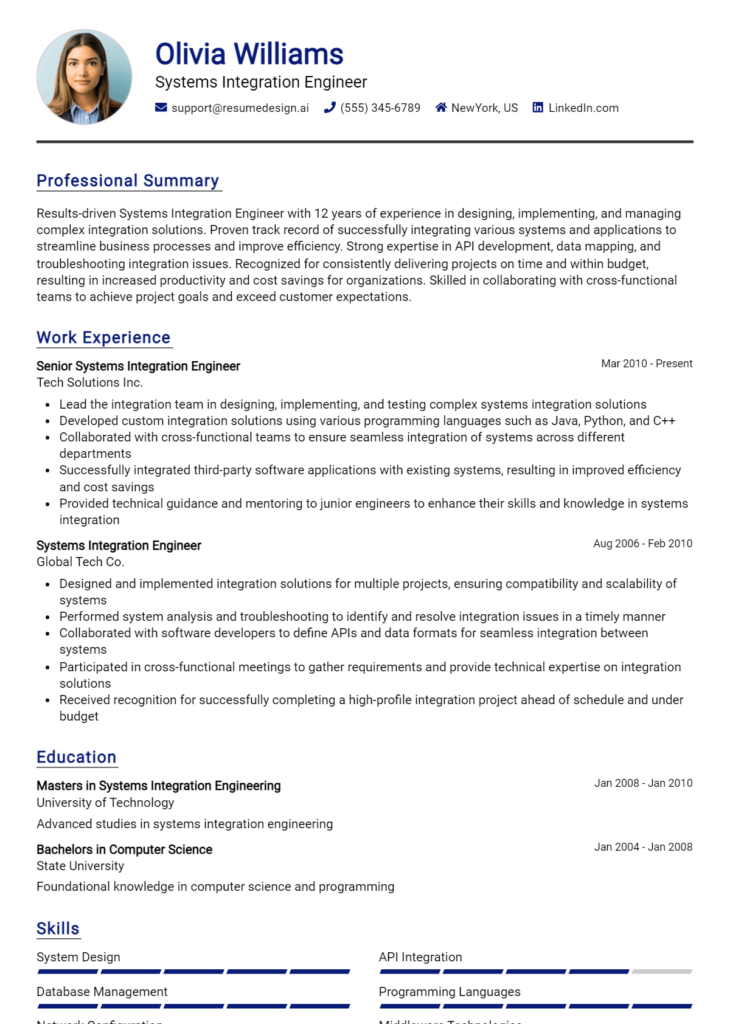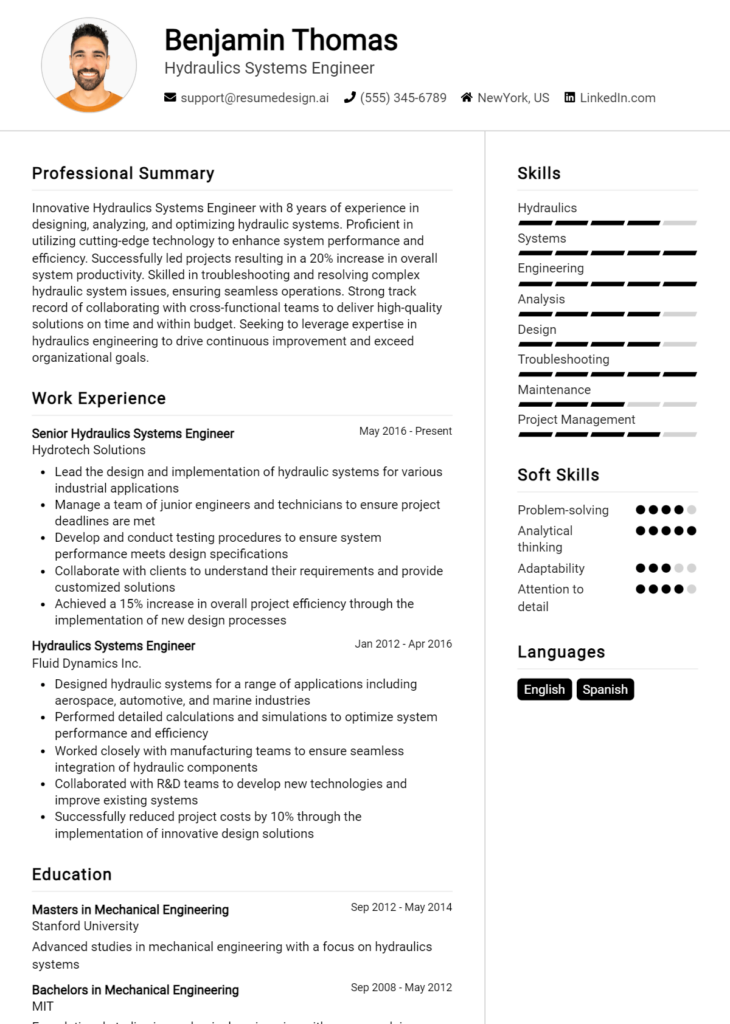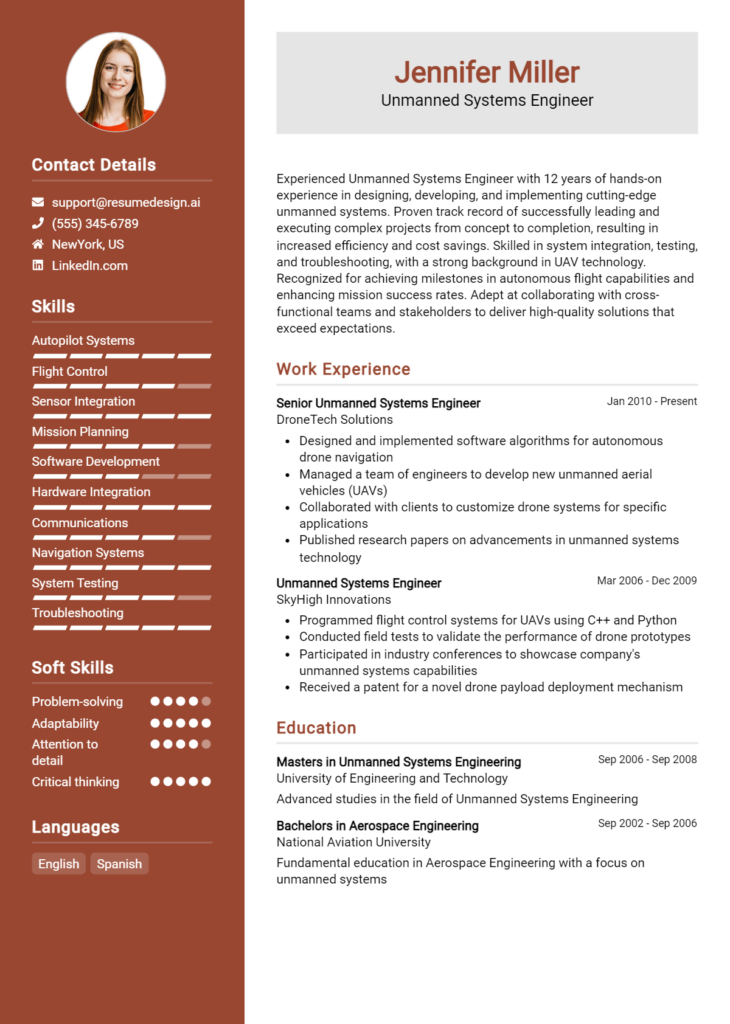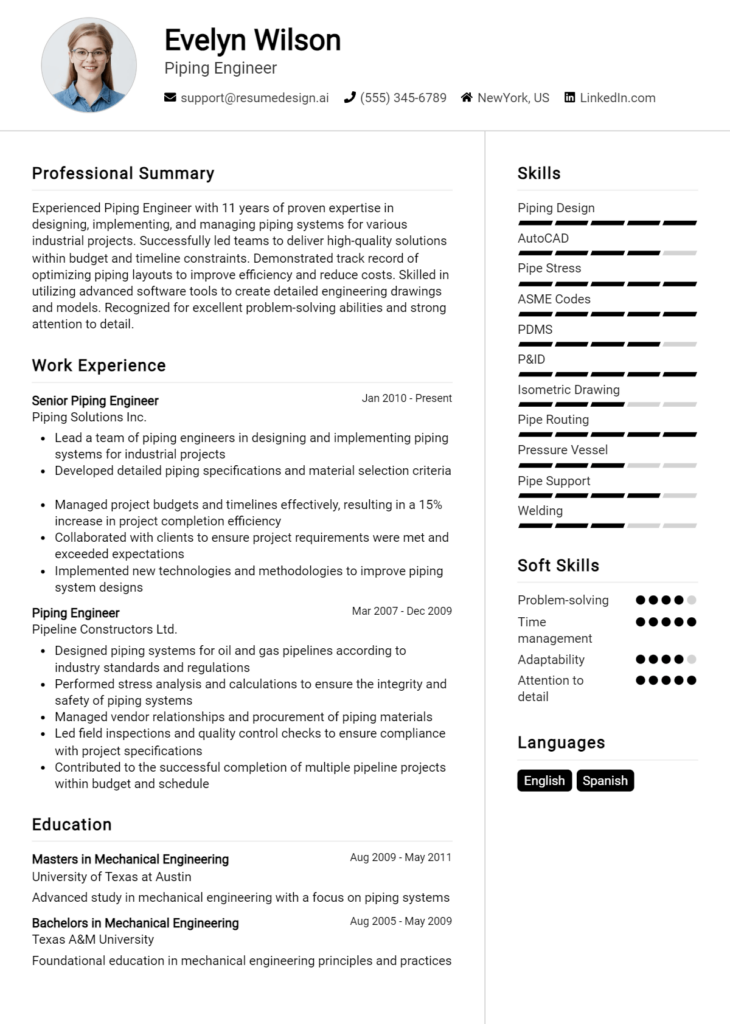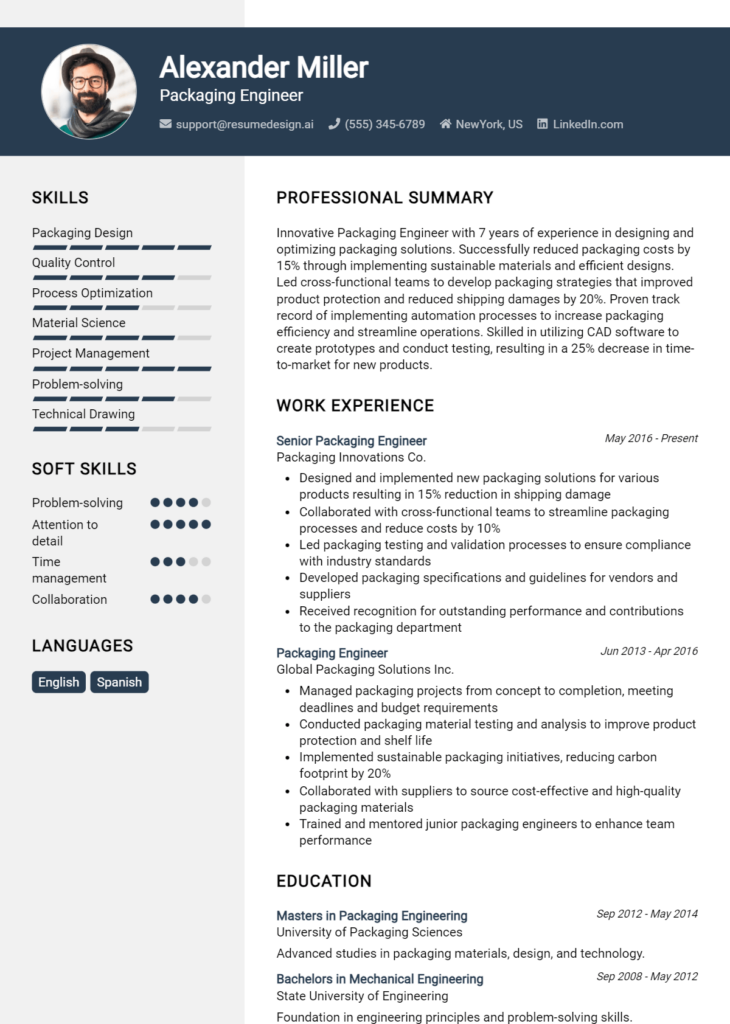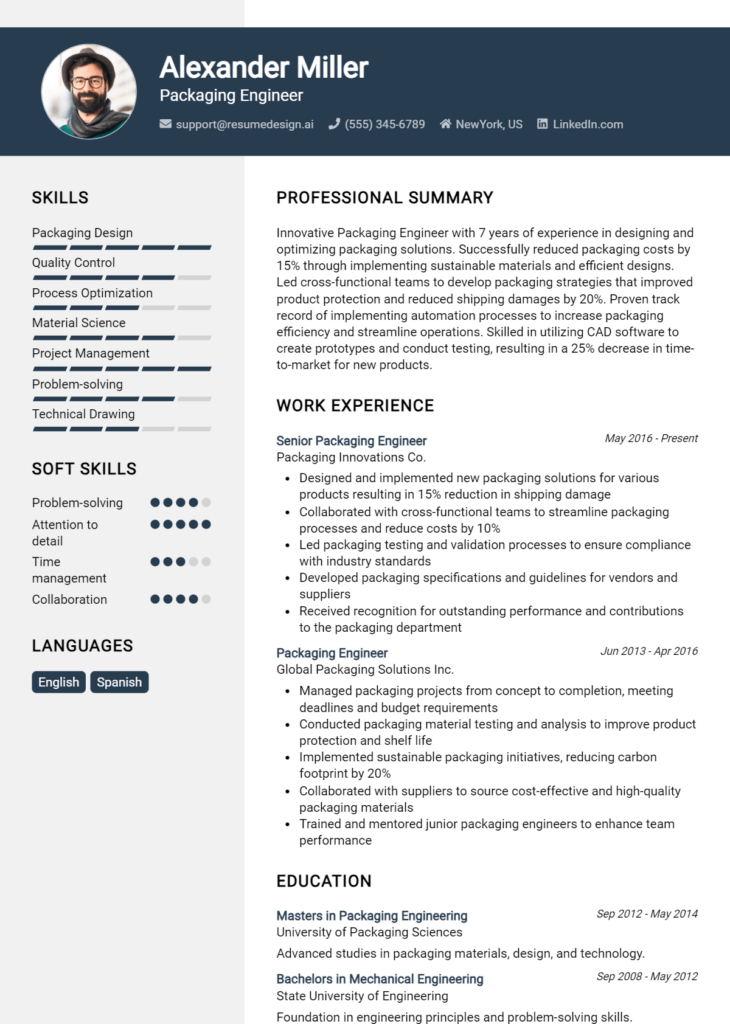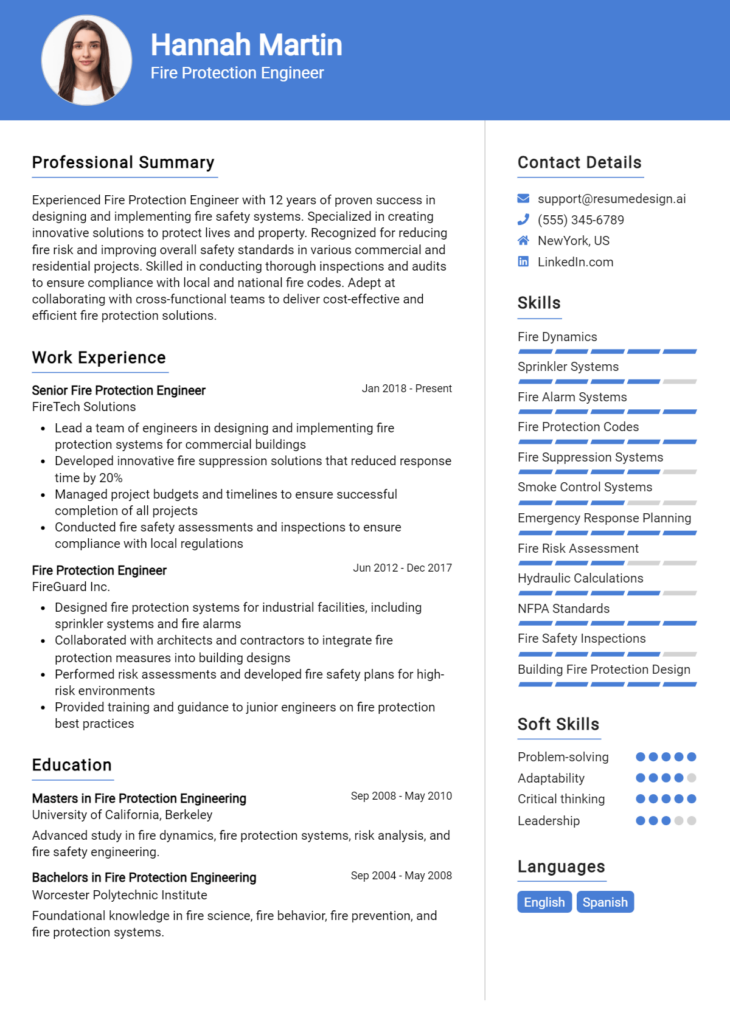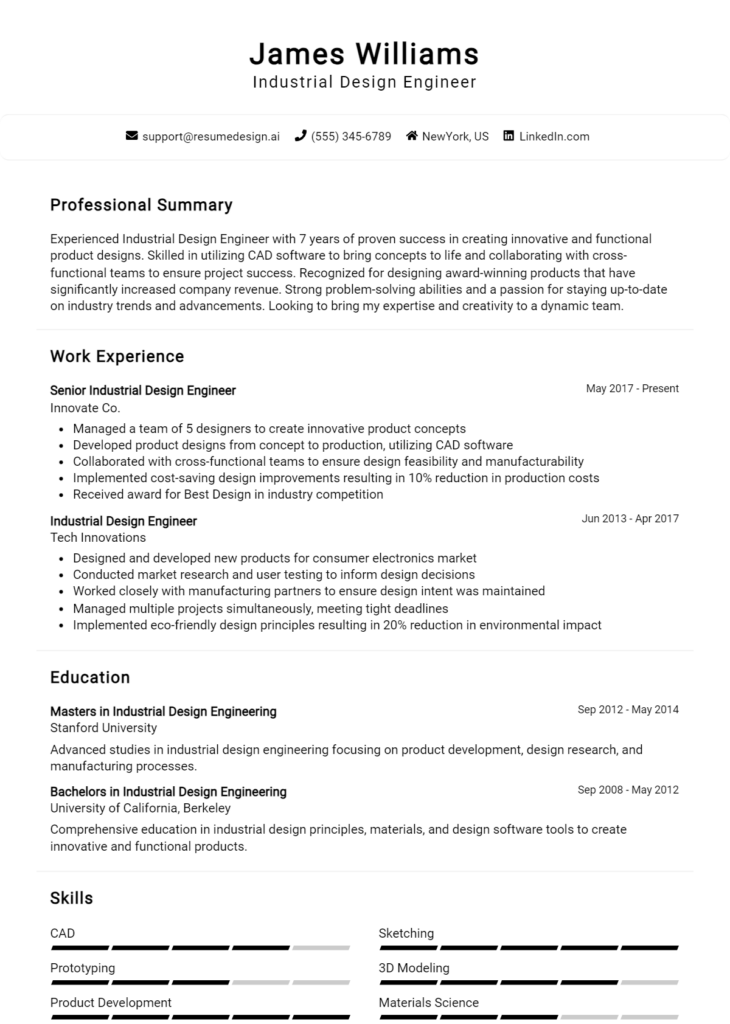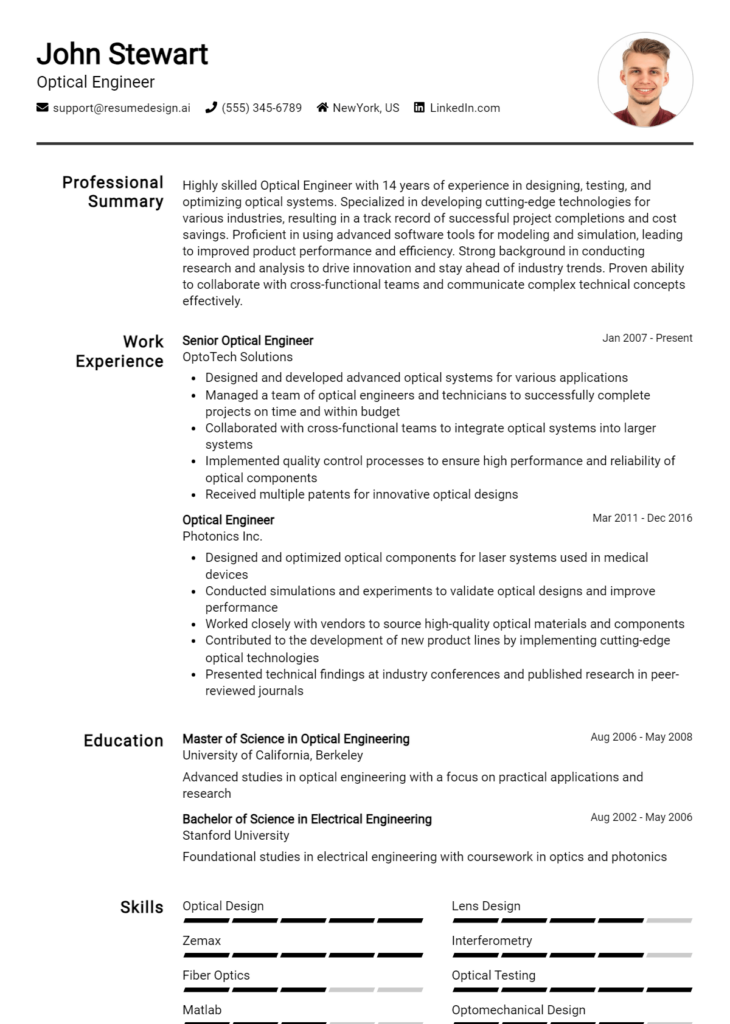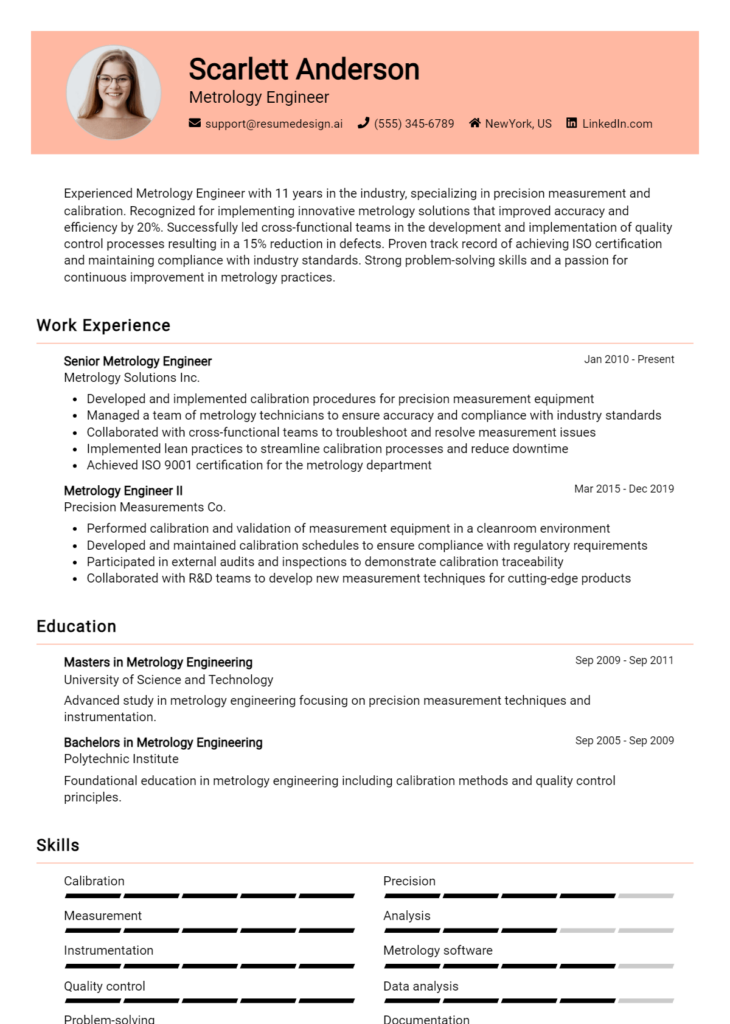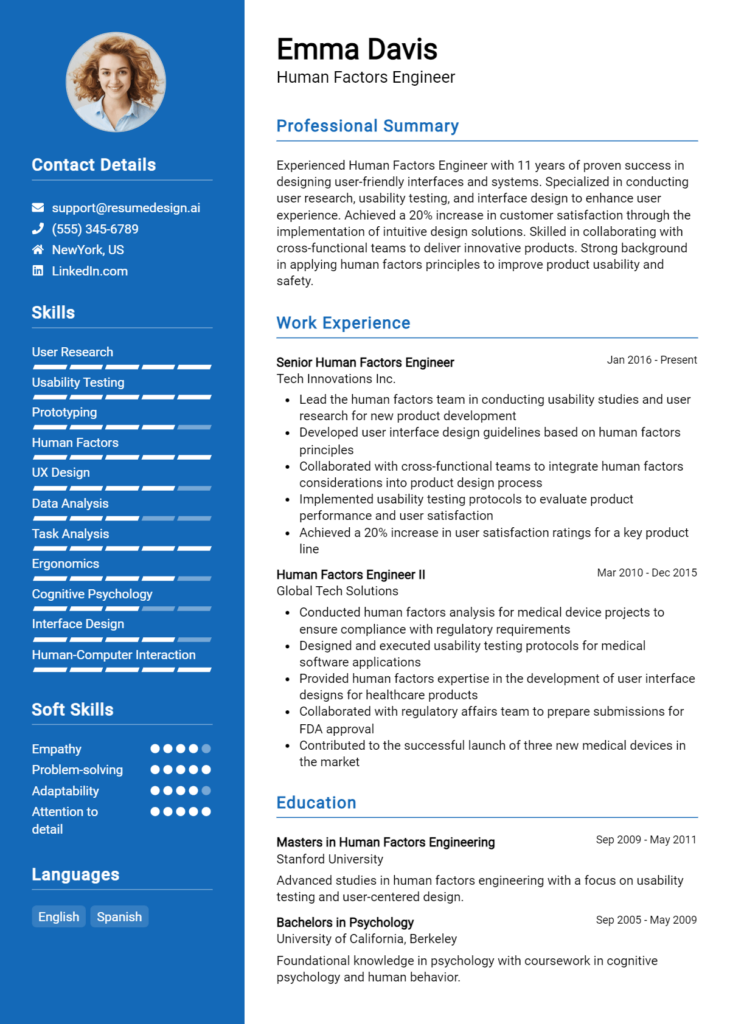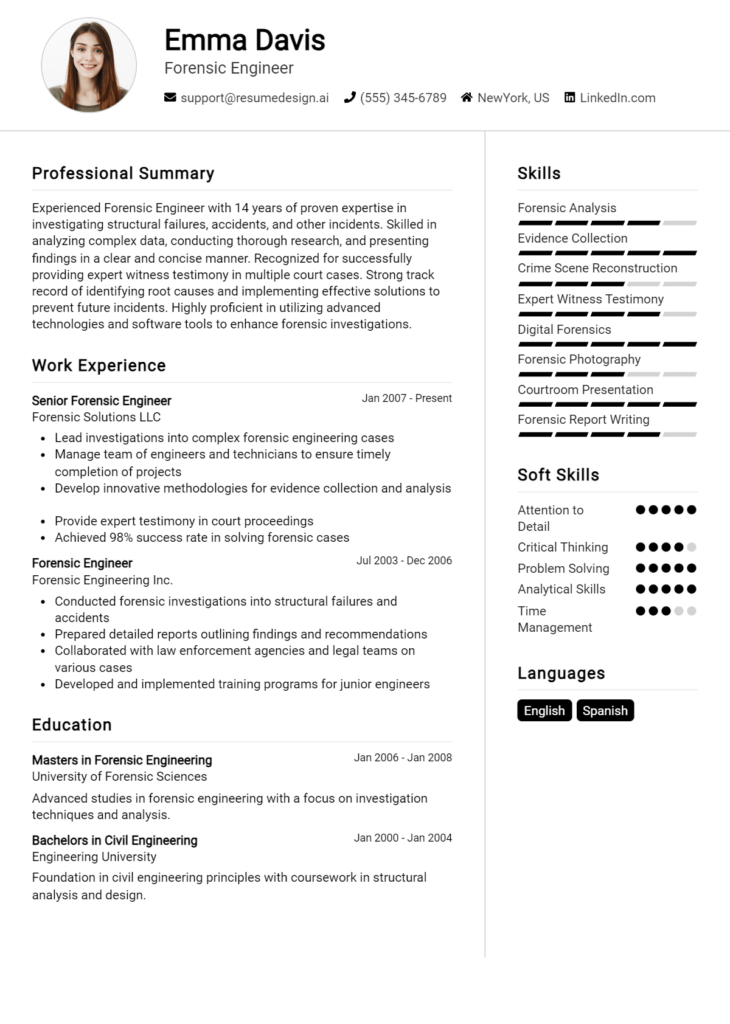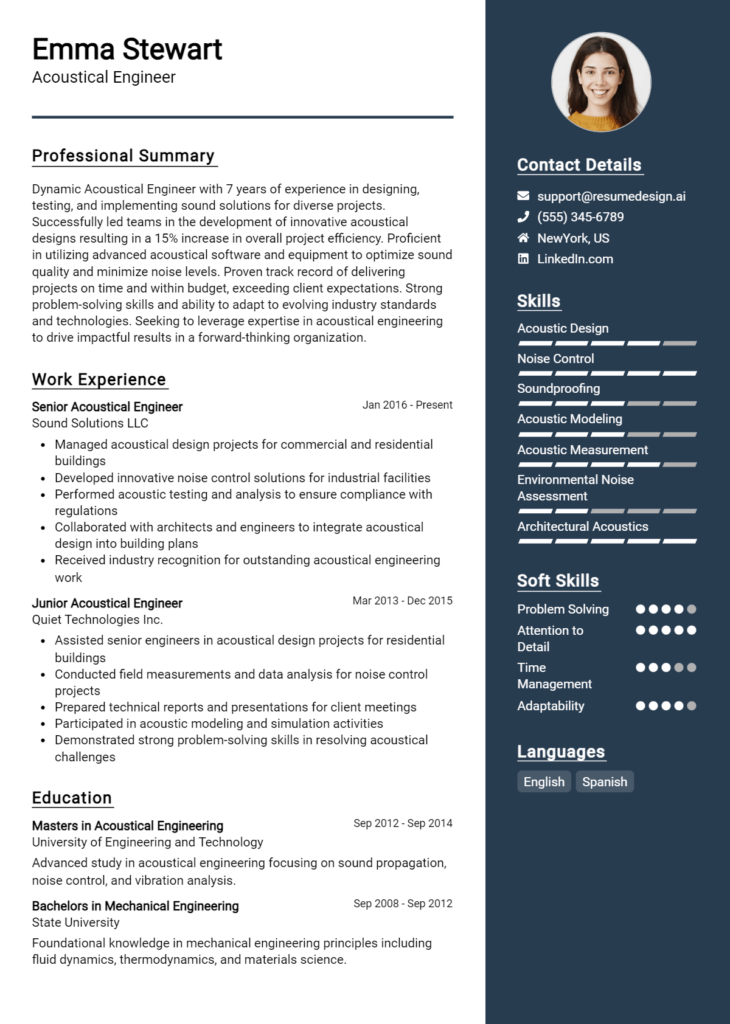Hydrology Engineer Core Responsibilities
A Hydrology Engineer plays a crucial role in managing water resources, ensuring environmental sustainability, and mitigating flood risks. Key responsibilities include analyzing hydrological data, designing stormwater management systems, and collaborating with environmental scientists and urban planners. Essential skills encompass technical proficiency in hydrological modeling, operational knowledge of water systems, and strong problem-solving abilities to address complex challenges. A well-structured resume highlighting these qualifications can effectively demonstrate how a Hydrology Engineer contributes to the organization's overarching goals.
Common Responsibilities Listed on Hydrology Engineer Resume
- Conduct hydrological assessments and modeling to predict water flow patterns.
- Design and evaluate water resource management systems.
- Collaborate with multidisciplinary teams on environmental projects.
- Develop and implement flood risk mitigation strategies.
- Analyze the impact of land use changes on water resources.
- Prepare technical reports and presentations for stakeholders.
- Ensure compliance with environmental regulations and permitting processes.
- Utilize Geographic Information Systems (GIS) for data analysis.
- Monitor and assess water quality and quantity in various ecosystems.
- Conduct field surveys and data collection for hydrological studies.
- Provide expert consultation on water management policies.
- Support the development of educational materials on hydrology-related topics.
High-Level Resume Tips for Hydrology Engineer Professionals
In the competitive field of hydrology engineering, a well-crafted resume serves as your first opportunity to make a lasting impression on potential employers. This document not only showcases your technical skills and achievements but also reflects your professionalism and attention to detail. A strong resume is essential for capturing the interest of hiring managers who sift through numerous applications, making it crucial for candidates to present their qualifications in a clear and compelling manner. This guide will provide practical and actionable resume tips specifically designed for hydrology engineer professionals, ensuring that your application stands out and accurately represents your expertise in this vital field.
Top Resume Tips for Hydrology Engineer Professionals
- Tailor your resume to the specific job description, using keywords from the posting to highlight relevant skills and experiences.
- Begin with a strong summary statement that encapsulates your experience and showcases your passion for hydrology engineering.
- Focus on relevant experience by prioritizing jobs and projects that align with the hydrology engineering discipline.
- Quantify your achievements with specific metrics, such as the percentage of water conservation achieved or the size of projects managed.
- Highlight industry-specific skills, such as proficiency in hydrologic modeling software, GIS tools, or environmental impact assessments.
- Include relevant certifications and licenses, such as Professional Engineer (PE) or Certified Floodplain Manager (CFM), to demonstrate your qualifications.
- Showcase your ability to collaborate by detailing experiences in project teams or interdisciplinary collaborations.
- Utilize action verbs to convey your contributions effectively, ensuring that your accomplishments are presented in a dynamic manner.
- Keep the format clean and professional, using consistent fonts and spacing to enhance readability.
- Proofread thoroughly to eliminate any spelling or grammatical errors that could detract from your professionalism.
By implementing these tips, you can significantly increase your chances of landing a job in the hydrology engineering field. A well-structured resume that clearly communicates your qualifications, experience, and achievements will not only grab the attention of hiring managers but also position you as a strong candidate in a competitive job market.
Why Resume Headlines & Titles are Important for Hydrology Engineer
In the competitive field of hydrology engineering, a well-crafted resume headline or title serves as a critical first impression that can set a candidate apart from the crowd. A strong headline encapsulates a candidate's key qualifications and expertise in a concise phrase, making it easier for hiring managers to quickly assess their fit for the role. By summarizing essential skills and experiences relevant to hydrology engineering, an impactful headline can grab the attention of recruiters, prompting them to delve deeper into the resume. Thus, crafting a precise and relevant headline is essential for effectively communicating the value a candidate brings to potential employers.
Best Practices for Crafting Resume Headlines for Hydrology Engineer
- Keep it concise: Aim for a headline that is no longer than one sentence.
- Be specific: Use terminology and keywords relevant to the hydrology engineering field.
- Highlight key qualifications: Focus on the most important skills or achievements that align with the job.
- Use action words: Begin with strong verbs to convey a sense of achievement and proactivity.
- Tailor for the job: Customize your headline for each application to reflect the specific job description.
- Showcase certifications and specializations: Mention relevant certifications or specialties to enhance credibility.
- Incorporate measurable results: If possible, include statistics or metrics that demonstrate past success.
- Maintain professionalism: Ensure the tone is professional and appropriate for the industry.
Example Resume Headlines for Hydrology Engineer
Strong Resume Headlines
Innovative Hydrology Engineer with 5+ Years of Experience in Water Resource Management
Certified Hydrologist Specializing in Flood Risk Assessment and Mitigation Strategies
Proven Track Record in Sustainable Water Solutions and Environmental Impact Studies
Dynamic Hydrology Engineer with Expertise in Hydrodynamic Modeling and Data Analysis
Weak Resume Headlines
Engineer Looking for a Job
Hydrology Professional
Experienced Engineer
The strong resume headlines are effective because they are specific and highlight key skills or experiences that align with the hydrology engineering role. They provide clear insights into the candidate's expertise and are designed to catch the attention of hiring managers. In contrast, the weak headlines fail to make an impact due to their vague and generic nature, which does not offer any substantial information about the candidate's qualifications or suitability for the job. By avoiding these pitfalls and focusing on targeted, compelling headlines, candidates can significantly improve their chances of standing out in a competitive job market.
Writing an Exceptional Hydrology Engineer Resume Summary
A well-crafted resume summary is essential for a Hydrology Engineer, as it serves as the first impression in a competitive job market. A strong summary quickly captures the attention of hiring managers by succinctly showcasing key skills, relevant experience, and notable accomplishments that align with the job role. It provides a snapshot of the candidate’s qualifications, making it easier for hiring managers to identify the right fit for their organization. To be effective, a resume summary should be concise, impactful, and tailored specifically to the job the candidate is applying for, highlighting their unique value proposition in the field of hydrology engineering.
Best Practices for Writing a Hydrology Engineer Resume Summary
- Start with a strong opening statement that encapsulates your professional background.
- Quantify your achievements with specific metrics to demonstrate your impact.
- Highlight relevant technical skills, tools, and methodologies specific to hydrology.
- Focus on your experience in water resource management, environmental assessments, or similar fields.
- Tailor the summary to match the job description and keywords used by the employer.
- Keep it concise, ideally within 3-5 sentences, to maintain the reader's attention.
- Use action-oriented language to convey your contributions and expertise.
- Showcase your ability to solve problems and deliver results in hydrology projects.
Example Hydrology Engineer Resume Summaries
Strong Resume Summaries
Dynamic Hydrology Engineer with over 7 years of experience in designing sustainable water resource systems, achieving a 30% reduction in project costs through innovative stormwater management solutions. Proficient in GIS and hydrological modeling, dedicated to providing data-driven insights for environmental compliance.
Accomplished Hydrology Engineer with a proven track record of managing large-scale watershed management projects, leading to a 25% improvement in water quality metrics. Skilled in environmental impact assessments and stakeholder engagement, committed to sustainable engineering practices.
Results-oriented Hydrology Engineer with expertise in flood risk analysis and mitigation strategies, successfully reducing flood incidents by 40% in urban areas. Adept at utilizing advanced hydrological software to optimize water system designs and compliance with environmental regulations.
Weak Resume Summaries
Hydrology Engineer with some experience in water projects. Looking for a new opportunity to apply skills.
Dedicated engineer interested in hydrology and environmental work. I have worked on multiple projects and want to further my career.
The examples of strong resume summaries are considered effective because they provide specific metrics and details about the candidate's achievements, showcasing their expertise and relevance to the role. They utilize quantifiable results, highlight pertinent skills, and demonstrate a clear understanding of the key responsibilities associated with hydrology engineering. In contrast, the weak resume summaries lack specificity, fail to convey measurable outcomes, and present a generic view of the candidate's experience, making it difficult for hiring managers to assess their qualifications effectively.
Work Experience Section for Hydrology Engineer Resume
The work experience section of a Hydrology Engineer's resume is a critical component that allows candidates to effectively demonstrate their technical skills and expertise in the field. This section not only highlights the candidate's ability to manage teams and projects but also showcases their capacity to deliver high-quality outcomes that meet industry standards. By quantifying achievements—such as the successful completion of projects under budget or ahead of schedule—candidates can provide tangible evidence of their capabilities. Aligning work experience with industry benchmarks further reinforces a candidate's suitability for the role, making this section vital in capturing the attention of hiring managers.
Best Practices for Hydrology Engineer Work Experience
- Use specific, quantifiable metrics to illustrate your achievements.
- Highlight technical skills relevant to hydrology and water resources engineering.
- Emphasize leadership roles or team management experiences.
- Include collaborative projects that demonstrate your ability to work with cross-functional teams.
- Tailor your experience to align with the job description and industry requirements.
- Use action verbs to convey initiative and impact.
- Provide context for your projects to explain their significance in the field.
- Focus on outcomes and results rather than just responsibilities.
Example Work Experiences for Hydrology Engineer
Strong Experiences
- Led a team of engineers in the design and implementation of a $2 million stormwater management system, reducing runoff by 30% and improving water quality standards in the region.
- Developed hydrological models using HEC-HMS software, resulting in a 25% increase in forecasting accuracy for flood events.
- Collaborated with local government agencies to secure permits for a major river restoration project, which enhanced biodiversity and improved public access to the waterfront.
- Successfully managed a multi-disciplinary team on a watershed assessment project, delivering findings two months ahead of schedule and under budget, which saved the organization 15% in project costs.
Weak Experiences
- Worked on various projects related to water management.
- Assisted with hydrology studies and data collection.
- Participated in meetings about project planning.
- Helped with environmental assessments and reports.
The examples listed as strong experiences clearly illustrate significant achievements, showcasing quantifiable outcomes and technical leadership, while also highlighting collaboration with stakeholders. In contrast, the weak experiences lack specificity and measurable results, failing to demonstrate the candidate's impact or expertise in hydrology engineering. This distinction emphasizes the importance of clarity and quantification in presenting work experiences effectively.
Education and Certifications Section for Hydrology Engineer Resume
The education and certifications section of a Hydrology Engineer resume is crucial as it underscores the candidate's academic qualifications and commitment to professional development. This section not only showcases degrees obtained from recognized institutions but also highlights relevant industry certifications and specialized training that enhance the candidate's expertise in hydrology and water resources management. By providing detailed coursework and certifications, candidates can significantly boost their credibility and demonstrate their alignment with the specific requirements of the job role, making them more attractive to potential employers.
Best Practices for Hydrology Engineer Education and Certifications
- Include degrees from accredited institutions relevant to hydrology, environmental science, or civil engineering.
- List industry-recognized certifications, such as Professional Engineer (PE) or Certified Floodplain Manager (CFM).
- Highlight relevant coursework that pertains to hydrological modeling, water quality analysis, or drainage design.
- Detail any specialized training or workshops attended that relate to the latest technologies and methodologies in hydrology.
- Use clear and concise formatting to enhance readability, making sure it is easy for hiring managers to find key information.
- Prioritize recent and relevant educational experiences over older qualifications that may no longer be pertinent.
- Consider including any ongoing education or professional development initiatives to demonstrate a commitment to continuous learning.
- Tailor this section to match the specific job description, emphasizing qualifications that directly meet the needs of the position.
Example Education and Certifications for Hydrology Engineer
Strong Examples
- M.S. in Hydrology, University of California, Berkeley, 2020
- Professional Engineer (PE) License, State of California, 2021
- Certified Floodplain Manager (CFM), Association of State Floodplain Managers, 2022
- B.S. in Civil Engineering with a focus on Water Resources, University of Illinois, 2018
Weak Examples
- Certificate in Basic Computer Skills, Community College, 2015
- B.A. in Literature, University of Texas, 2010
- High School Diploma, Anytown High School, 2005
- Outdated Certification in Environmental Impact Assessment, 2000
The strong examples represent relevant and up-to-date qualifications that directly align with the requirements of a Hydrology Engineer, showcasing both advanced degrees and professional certifications that enhance the candidate's expertise. Conversely, the weak examples highlight qualifications that are either irrelevant to the field of hydrology or outdated, which do not contribute to the candidate's credibility or marketability in the hydrology engineering sector.
Top Skills & Keywords for Hydrology Engineer Resume
As a Hydrology Engineer, showcasing the right skills on your resume is crucial to stand out in a competitive job market. Employers look for candidates who not only possess technical expertise but also demonstrate effective interpersonal abilities that facilitate collaboration and problem-solving in complex projects. Highlighting these skills can significantly enhance your resume, making it an essential element for successfully conveying your qualifications. A well-crafted resume that features both hard and soft skills can effectively communicate your capabilities and readiness to tackle the challenges inherent in hydrology engineering.
Top Hard & Soft Skills for Hydrology Engineer
Soft Skills
- Strong communication skills
- Team collaboration
- Critical thinking
- Problem-solving abilities
- Time management
- Adaptability to changing conditions
- Attention to detail
- Leadership qualities
- Conflict resolution
- Creativity in design and analysis
- Client relationship management
- Negotiation skills
- Cultural sensitivity
- Project management skills
Hard Skills
- Proficiency in hydrological modeling software (e.g., HEC-RAS, SWMM)
- Knowledge of water resource management practices
- Experience with GIS and remote sensing tools
- Understanding of environmental regulations and compliance
- Data analysis and statistical modeling
- Hydraulic design and analysis
- Groundwater assessment techniques
- Soil and water conservation practices
- Familiarity with surveying and mapping techniques
- Proficient in technical report writing
- Project lifecycle management
- Environmental impact assessment
- Flood risk assessment methodologies
- Knowledge of sediment transport processes
For a more comprehensive understanding of the importance of skills in your resume, you can explore relevant skills and highlight your work experience effectively.
Stand Out with a Winning Hydrology Engineer Cover Letter
I am writing to express my interest in the Hydrology Engineer position at [Company Name], as advertised on [where you found the job listing]. With a Master’s degree in Civil Engineering and over five years of experience specializing in hydrology and water resources management, I am excited about the opportunity to contribute my skills and expertise to your team. My background in hydrological modeling, watershed management, and stormwater management aligns perfectly with the innovative projects at [Company Name], and I am eager to bring my passion for sustainable engineering to your organization.
In my previous role at [Previous Company Name], I successfully led a team to develop and implement a comprehensive hydrological model for a major watershed project, which resulted in a 30% reduction in flood risks for the surrounding communities. My ability to analyze complex data sets and translate them into actionable strategies has been instrumental in optimizing water resource allocation and ensuring compliance with environmental regulations. I pride myself on my strong analytical skills and my commitment to using cutting-edge technology to find effective solutions to hydrological challenges.
I am particularly drawn to [Company Name] because of its commitment to sustainability and innovative approaches to water management. I admire your recent initiatives in eco-friendly flood control systems and believe my experience in designing green infrastructure solutions would allow me to make a significant impact on your projects. I am eager to collaborate with a team that shares my dedication to enhancing water quality and promoting sustainable practices in the face of climate change.
Thank you for considering my application. I look forward to the opportunity to discuss how my background, skills, and enthusiasms align with the goals of [Company Name]. I am excited about the possibility of contributing to your team and am available for an interview at your earliest convenience.
Common Mistakes to Avoid in a Hydrology Engineer Resume
When crafting a resume for a Hydrology Engineer position, it’s crucial to present your skills and experiences effectively. However, many candidates make common mistakes that can hinder their chances of landing an interview. Understanding these pitfalls can help you create a more impactful resume that highlights your qualifications and aligns with the expectations of hiring managers in the field.
Vague Job Descriptions: Using overly general language or unclear job titles can confuse hiring managers about your actual responsibilities and achievements. Be specific about your roles and contributions in previous positions.
Neglecting Relevant Keywords: Failing to include industry-specific keywords can result in your resume being overlooked by Applicant Tracking Systems (ATS). Integrate terms related to hydrology, environmental engineering, and technical skills relevant to the job description.
Overloading with Technical Jargon: While it’s important to showcase your technical expertise, using excessive jargon can alienate readers who may not be familiar with all the terms. Balance the use of technical language with clear explanations.
Ignoring Soft Skills: Hydrology Engineers often work in teams and communicate with various stakeholders. Omitting soft skills like teamwork, communication, and problem-solving can make your resume less appealing. Highlight these skills alongside your technical abilities.
Inconsistent Formatting: A disorganized resume can distract from your qualifications. Ensure consistent formatting regarding fonts, bullet points, and spacing to create a polished and professional appearance.
Lack of Quantifiable Achievements: Simply listing job duties without showcasing accomplishments can weaken your resume. Use metrics to quantify your achievements, such as project outcomes, cost savings, or efficiency improvements.
Failing to Customize for Each Job Application: Sending out a generic resume can be detrimental. Tailor your resume for each application by emphasizing relevant experience and skills that align with the specific job requirements.
Skipping Proofreading: Spelling and grammatical errors can create a negative impression. Always proofread your resume or have someone else review it to ensure it is free of mistakes before submission.
Conclusion
As a Hydrology Engineer, you play a crucial role in managing water resources, addressing water quality issues, and designing systems that mitigate flooding. Throughout this article, we explored the essential skills and qualifications that are vital for success in this profession, including advanced knowledge of hydrological modeling, proficiency in software tools, and the ability to collaborate with multidisciplinary teams.
Additionally, we highlighted the importance of staying updated with the latest industry trends and regulations, as well as pursuing continuing education opportunities to enhance your expertise. Networking within professional organizations can also provide valuable insights and job opportunities in this competitive field.
Now is the perfect time to review your Hydrology Engineer resume. Ensure it reflects your skills, experiences, and achievements accurately. Take advantage of resources available to you, such as resume templates, resume builder, and resume examples. Additionally, consider utilizing cover letter templates to create a compelling introduction to your application. By updating your resume and cover letter, you can significantly enhance your chances of landing your next role in this dynamic field. Don’t wait—get started today!

